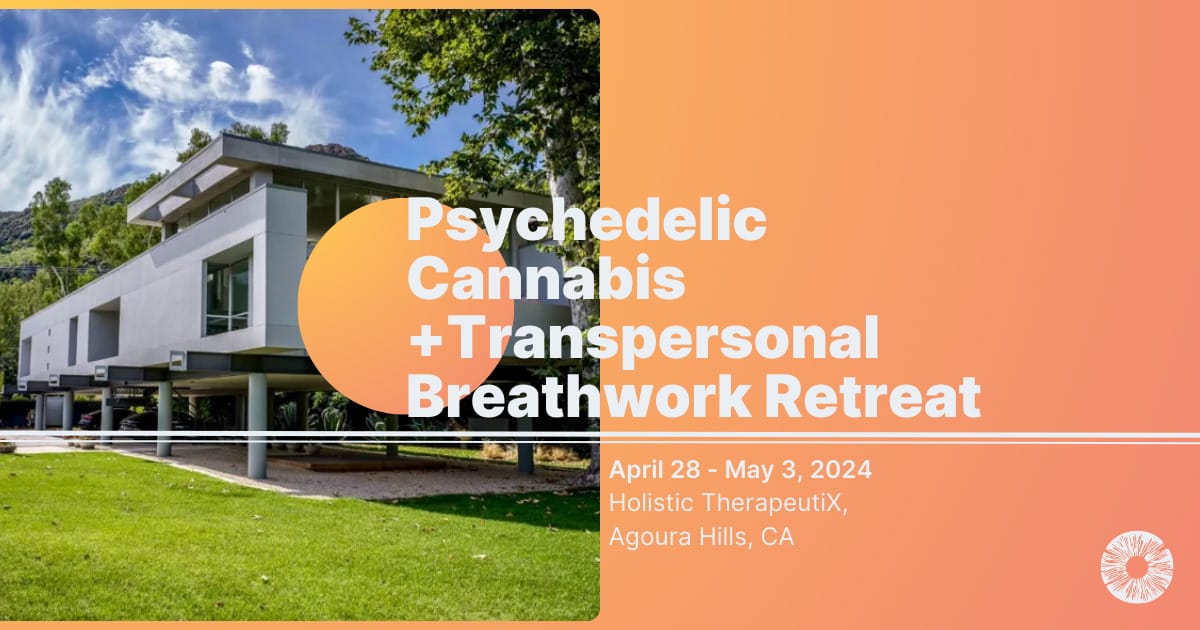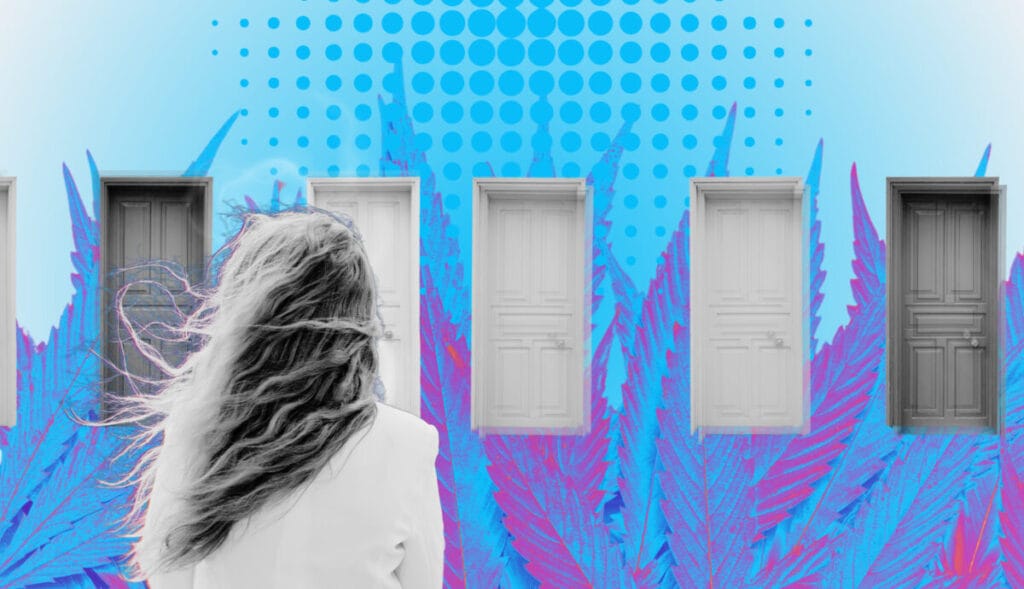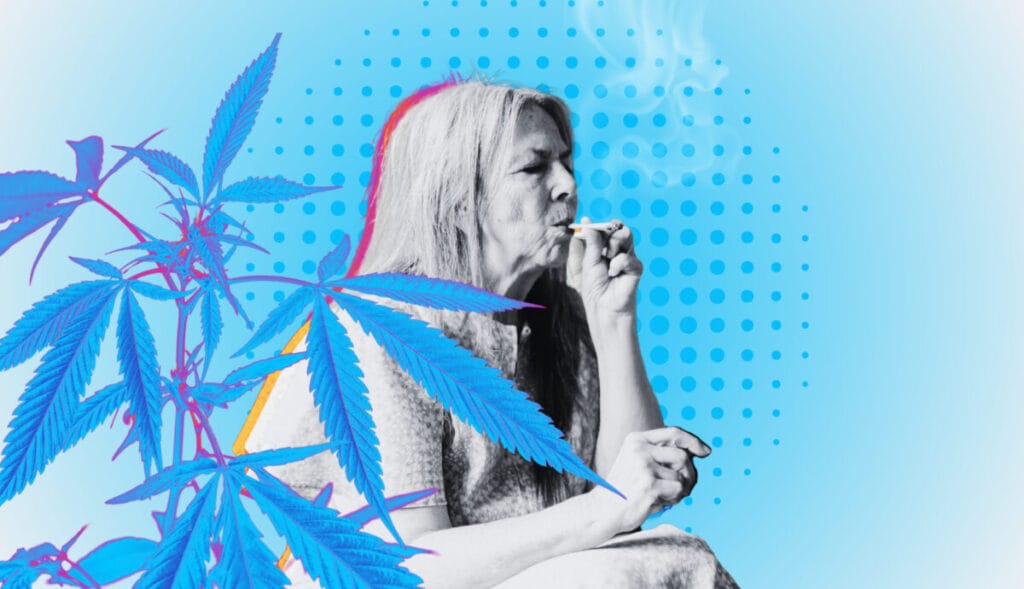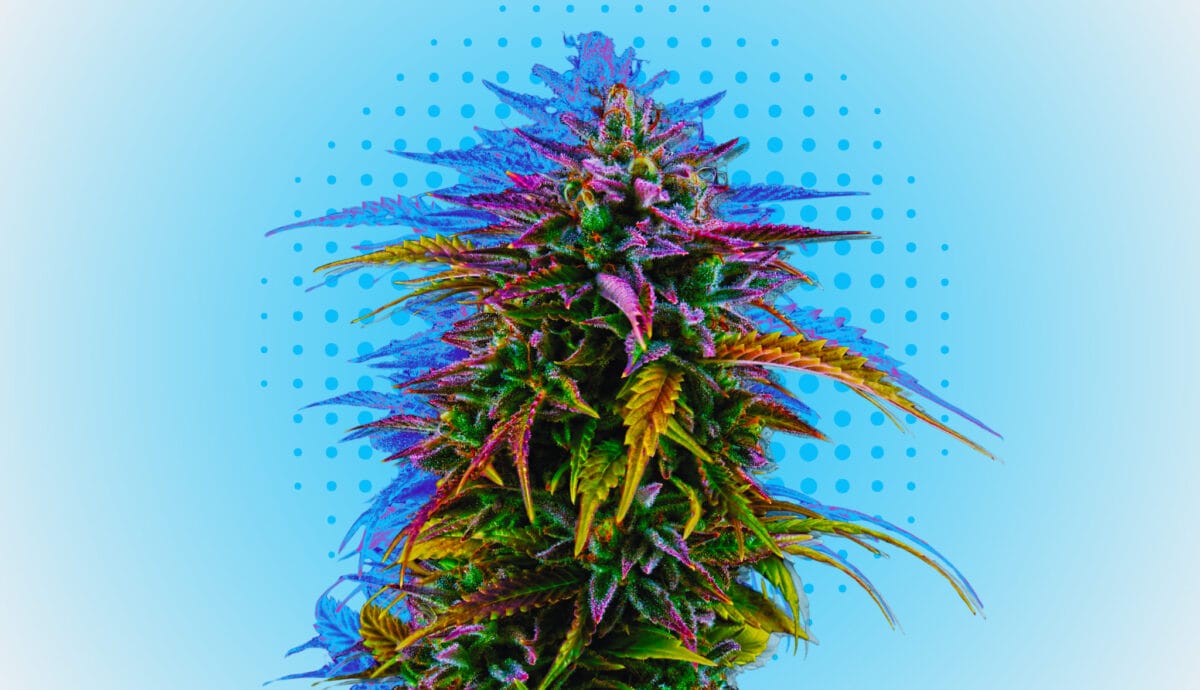While psychoactive substances like psilocybin and MDMA have taken the spotlight as frontrunners in psychedelic-assisted therapy, the growing impact of cannabis in combating treatment-resistant trauma is becoming undeniable.
Despite Western science largely overlooking the psychedelic potential of cannabis, recent insights from a literature review in the Journal of Psychopharmacology suggest that high doses of THC may indeed induce psychedelic effects.
However, the ongoing industry discourse begs the question: Is cannabis truly a psychedelic? Its therapeutic potential and current application in the therapy field suggest that it is indeed.

Cannabis in Cracking Open Dissociation
Have you ever embarked on a psychedelic experience, anxiously anticipating the arrival of breathing objects and fractal patterns, only to find your visual reality unchanged? Cannabis could be key to unlocking the desired psychedelic effect.
According to psychotherapist and MAPS phase 2 clinical investigator, Saj Razvi, this phenomenon of lackluster psychedelic experiences could be directly attributed to “dissociation.”
“Generally, mental health is not very good at realizing dissociation — tracking it, working with it,” said Razvi, founder and director of education at the Psychedelic Somatic Institute. “A major component of what we call ‘treatment resistance’ is dissociation.”
In the case of those who don’t feel the anticipated effects of a psychedelic, it’s likely the substance is butting up against dissociation within an individual’s system, thereby suppressing the psychedelic experience.
“This means that we’re secreting endogenous opioids to physically, emotionally, and psychologically numb us out,” he told Psychedelics Today.
Enter cannabis. The plant, Razvi says, seems to work with dissociation faster than any other medicine he has encountered.
Razvi’s clinical work conducted in Amsterdam sheds further light on the role of cannabis in addressing non-responsiveness to classical psychedelics like psilocybin. A percentage of individuals showed no significant response to psilocybin, reporting only subtle perceptual shifts (if anything at all). During their rest period, before their next psilocybin session, Razvi offered participants the opportunity to explore cannabis.
“What we observed was that individuals who were non-responders to psilocybin exhibited a response to cannabis, and what the cannabis targeted was their dissociation.”
Remarkably, after three sessions of cannabis work, participants experienced such a reduction in dissociation that their subsequent psilocybin experiences were drastically different.
“Cannabis is one of the most grossly underestimated and misunderstood medicines in the psychedelic medicine cabinet,’” Micah Stover, a somatic psychedelic therapist trained under Razvi’s PSIP model, told Psychedelics Today.
“When we talk about psychedelic therapy, we emphasize the importance of set and setting. If we’re not in an optimal set and setting, we often fail to consider it as such. However, when we use (cannabis) within that context, our experience can be wildly impactful,” Stover said.

Is Cannabis Truly Psychedelic? Definitions Matter
But the question remains: despite the potential for cannabis to assist in sparking psychedelic experiences with classic entheogens, is it truly a psychedelic itself?
The recent Journal of Psychopharmacology review concluded that the dosage, set, and settings used within cannabis trials conducted so far may not have been conducive to eliciting psychedelic-like experiences, indicating a need for further research.
On the other hand, evidence has indicated that high doses of THC can lead to mystical-type experiences, one of the key clinical features of classical psychedelics.
According to Razvi, the answer to the question all depends on how you define “psychedelic.”
“In my definition of it, yes. It’s taking us to primary consciousness, it’s giving us a different experience of primary consciousness than classic psychedelics, but it is a psychedelic in that it really shifts where we’re operating from.”
So, what sets cannabis apart from other psychoactive substances and how do its effects on the mind and body differ?
With classic tryptamines, transpersonal experiences are typically felt, like “unity consciousness, and existential reconciliation,” Razvi said. Unlike tryptamines, MDMA and cannabis typically do not induce the same level of transpersonal consciousness.
“Both of those medicines (MDMA and cannabis) are so useful for working with trauma because they’re not transpersonal in nature. They’re very personal, they don’t challenge the fundamental you,” he said.
Another trait that MDMA and cannabis share with psychedelics is their ability to heighten body awareness and pre-sensate experiences.
“With that sensate reality of our bodies, people notice things at very detailed levels that they don’t normally notice at all,” Razvi told Psychedelics Today.
Another notable ability of cannabis, he says, is how it disrupts executive function.
“Your capacity to tell a story, your mind’s ability to work in any kind of normal way gets thoroughly disrupted by cannabis. I think it’s one of the reasons why cannabis is so distrusted in mental health — we can’t do traditional talk therapy on it.”
Not only is it helpful to incorporate somatic modalities in cannabis work, it’s necessary, Razvi says. The gift of cannabis is, “it places us in the arena where somatic therapies work.”

Opening Doors to Transpersonal States
Could cannabis then be a valuable entry point to non-ordinary, psychedelic states? Razvi suggests it’s a good idea to reclaim the foundation of your physical being first.
“If your nervous system exists in a state of compromise, meaning there’s a lot of dissociation in your system, you can do transpersonal work, but you’re doing it from a position of a compromised foundation.”
He suggests that individuals dealing with pre-personal biological levels of trauma and compromise in their system may find resolution for those layers working with less transpersonal medicines, such as cannabis and MDMA.
“Ideally, resolve that layer, then move on to more transpersonal experiences,” he says.
“Something I have observed in clients is how they assimilate new ideas and upgrade their belief systems following a psilocybin experience, which can be beneficial as their old beliefs might have become ineffective,” Stover added.
“However, there’s often a disconnect between their newfound ideas and their physical bodies. So, body and spirit are in different places and this is why somatic work is so hugely important. Cannabis can be a powerful ally — when facilitated in the right process — to sync body and mind.”
The Ritual Use of Cannabis
Turning toward the wisdom of communities who have integrated cannabis within their cultural frameworks: for a rural community in Catalonia called Wonderland (or País de las Maravillas), cannabis has long been woven into ritual contexts.
Research on the ritualistic use of cannabis concluded that the rituals “can even generate beneficial effects for the individual as well as the community by strengthening bonds between community members,” and, “are seen as spiritual or religious practices, as well as forms of self-care and community-care, rather than involving drug dependence or addiction.”
Ultimately, whether within communal or scientific settings, context matters and, much like a classical psychedelic, the outcome of cannabis experiences is highly dependent on the nature in which they are consumed.

Healing Experiences Within a Relational Context
“People should not walk away thinking that if they smoke cannabis, they are going to have deeply restorative psychedelic experiences for their nervous system and trauma,” Stover cautions.
If individuals plan to consume cannabis as part of a ritual or ceremony – just like psychedelics – the relationship matters.
“Arguably, I think that’s true to some degree with all (substances), but certainly, if we’re going to try to leverage cannabis as a healing agent in this way,” she said.
“I think this is where the gold is, right?” Razvi added. “I think we’re missing out on major therapeutic opportunities when we’re doing more non-relational, sitter models. Human relational wounding requires human relational work.”
Continuing the debate, is cannabis a psychedelic? Whether the psychedelic community will be open to labelling cannabis a psychedelic may take time and further evidence, its significance as a valuable therapeutic medicine is undeniable.
One thing remains certain: the true healing power of mind-altering substances comes down to who, what, where, and why we are taking them. In that respect, cannabis has definitely earned a seat on the therapy couch.
Eager to learn more about the role of cannabis in ceremony and for personal growth? Consider joining us at U.S. retreats through 2024, where we will explore the healing potential of cannabis, breathwork, and community.
April 28 – May 3, 2024: Psychedelic Cannabis + Transpersonal Breathwork Retreat at Holistic TherapeutiX Center (Agoura Hills, California)
Oct. 20 – 25, 2024: Psychedelic Cannabis + Transpersonal Breathwork Retreat at Holistic TherapeutiX Center (Agoura Hills, California)

